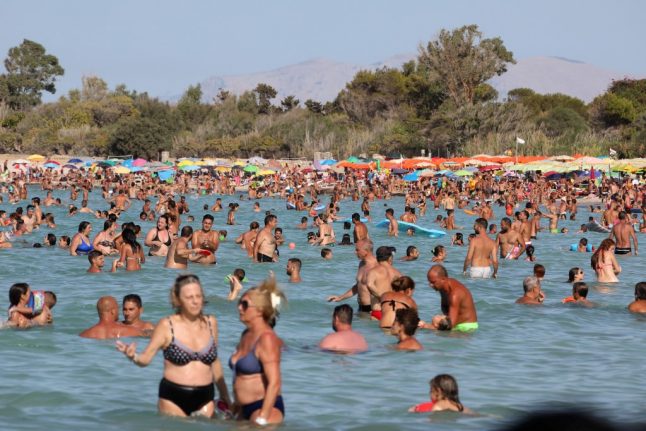Some 17.6 million residents are planning to travel in July, according to a new study by Italian agriculture association Coldiretti, with 86 percent of them choosing to take their vacation in Italy.
That works out at over 15 million Italian holidaymakers within Italy this month, without even counting the millions more arriving from abroad.
Seventy percent of Italian travellers will be heading to the coast, with the mountains the second most popular choice.
READ ALSO: The ultimate 2019 travel list: Where to go in Italy this year

Photo: DepositPhotos
And while beaches will certainly be crowded and roads busier, there won't necessarily be as much competition for accommodation as you might expect: more than half of Italian holidaymakers plan to stay in private accommodation they or their family and friends already own or rent, Coldiretti said.
While the first weekend of July marks the traditional start of the peak season in Italy, even more people are expected to take off in August.
READ ALSO:
- Italy named world's 'most desirable' holiday destination
- How the rest of the world sees Italy: Good for tourism, bad for tolerance?
- Ripped off: Italy's worst tourist scams and how to avoid them
Over the entire summer from June to September, nearly 32 million Italian residents will go on holiday – 1.3 million more than last year – with 35 percent of them travelling in August, according to separate research by the tourism industry association Confturismo-Confcommercio.
And 77 percent will stay in Italy, the study said, naming the most popular destinations as Puglia, Sicily, Sardinia and Tuscany.

Barely room to sit on this Sicilian beach in August. Photo: Ludovico Morin/AFP
While Italy's charms are obvious, they're not the only factor prompting Italians to stay at home this summer: according to Coldiretti, more than one in four resident (26 percent) said that terrorist attacks in other countries had influenced their choice.
Another important consideration was food, which was the top criteria for 19 percent of Italian travellers when choosing a destination, and one of the factors for another 53 percent.
READ ALSO:
- Agriturismo: Italian region declares only local wines can be served to tourists
- Rome's Fiumicino rated the 'best airport in Europe'
- Venice puts off charging entry fees until next year
The net result is that tourists, both domestic and international, are expected to spend at least €8 billion more in Italy this summer than Italian holidaymakers spend abroad – marking a recovery from a poor spring, when unseasonably bad weather prompted many travellers to cancel their trips.
Germans are the single biggest group of inbound tourists to Italy (20 percent), followed by Americans (11 percent), the French (10 percent) and Brits (9 percent).
More than 60 million travellers are expected to pass through Italian airports between June and August this year, 40 million of them foreigners.



 Please whitelist us to continue reading.
Please whitelist us to continue reading.
Member comments